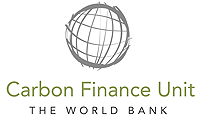Overview
Soil erosion and landslides have been major environmental problems that adversely affected land productivity in several regions of the Republic of Moldova. These problems if allowed to continue could result in long-term adverse impacts on the land productivity in several parts of the country.
The Moldova Soil Conservation Project implemented as an AR Clean Development Mechanism (CDM) project has aimed to achieve multiple objectives of restoring productivity of degraded lands, enhancing forest product supplies to local communities and promoting actual net GHG removals by sinks. The project area covered degraded lands in the northern, central and southern regions of the country.
In conformity with the approved methodology AR-AM0002, the project covered lands categorized as degraded lands under the official land use classification of Republic of Moldova. Degraded lands are categorized as those that have negative anthropogenic or natural processes that could cause at least 5% or more of loss in productivity and corresponding increase in the restoration expenditure. Such lands have also been found to show productivity declines as observed from the loss carbon pools in the baseline scenario. Degraded lands are adversely affected with physical, chemical, and biological processes such as accelerated erosion, leaching, soil compaction, salinization, water logging, flooding, loss of fertility, decline in natural regeneration, disruption of hydrological cycle or increased drought risk.
Benefits
The project has delivered the following benefits:
- Prevention of future land degradation: The project has prevented landslides, improved hydrological regime and minimized water and wind erosion. The afforested areas have acted as shelter-belts and limit adverse impacts of soil erosion from degraded lands on adjoining lands.
- Supply of forest products and services: Local population has benefited from increases in supplies of forest products. In the medium to long-term, the project has provided multiple products, services, and income from sale of timber and non-timber products such as medicinal plants, honey from beekeeping etc., and fuelwood supplies to meet the household cooking energy needs of the rural and urban households.
- Community-based management of degraded lands: The project activity was made possible with active cooperation of local councils, who own about 40% of lands under the project, and are expected to manage these lands after their transfer from Modlsilva.
- Local employment: The project has created local employment through planting, weeding, tending, thinning, protection, and harvest of wood. The project has provided employment to men in site preparation, planting and harvesting, and to women in nursery management, weeding, and collection of non-timber forest products.
- Increase in GHG removals in soil and biomass pools: The project activity has enhanced the GHG removals by preventing soil erosion, which is estimated to account for carbon losses up to 50 t/ha (0.9 tonnes of carbon ha-1 yr-1) in areas of severe wind and water erosion. The GHG removals have been enhanced through restoration of soil productivity and creation of above and below-ground carbon pools.
- Biodiversity conservation: Biodiversity impacts of the project have been in terms of protection of threatened species, improvements in ecological succession and restoration of habitats of endangered flora and fauna.
